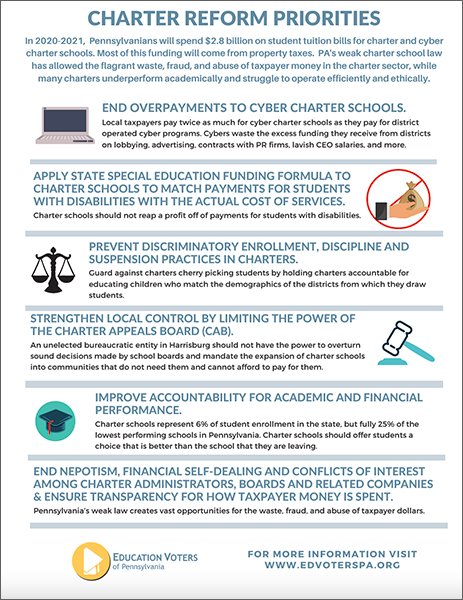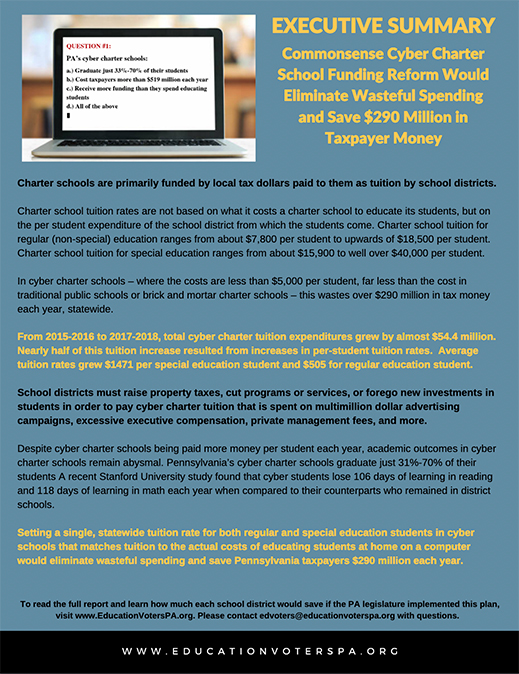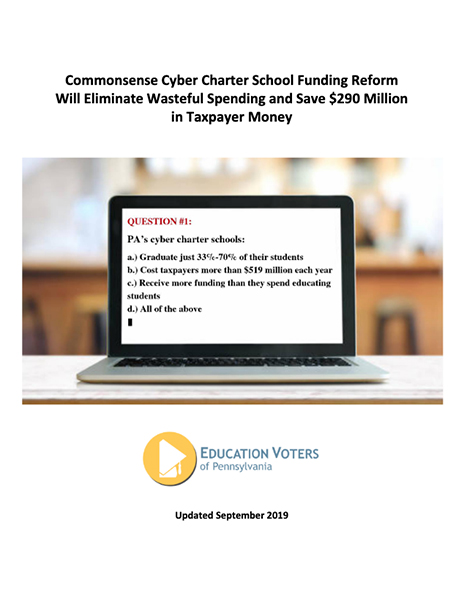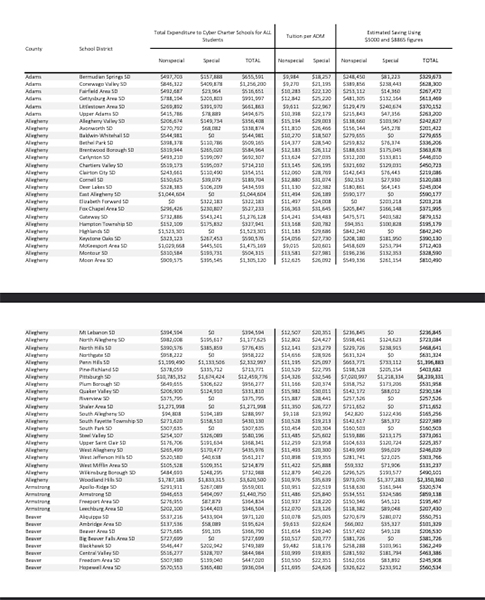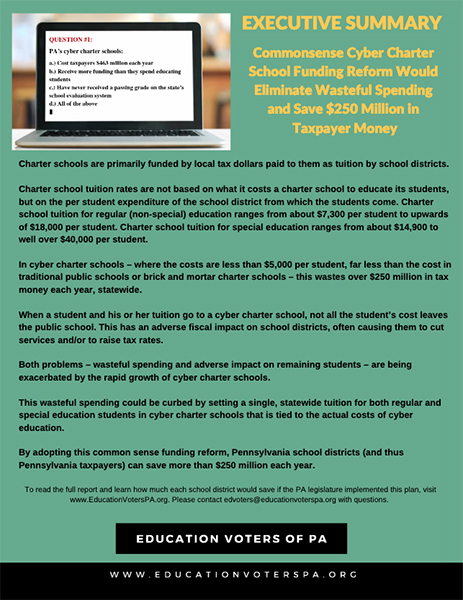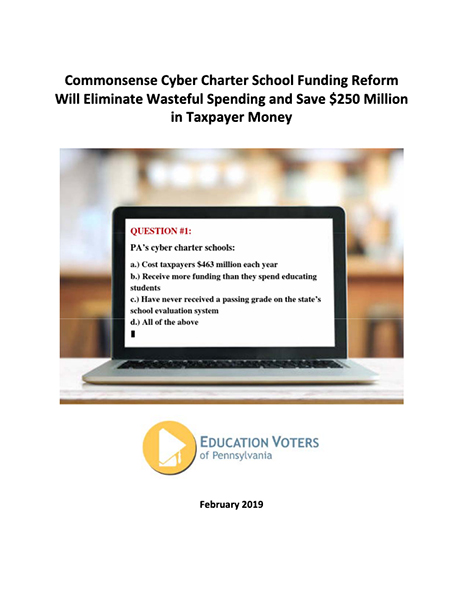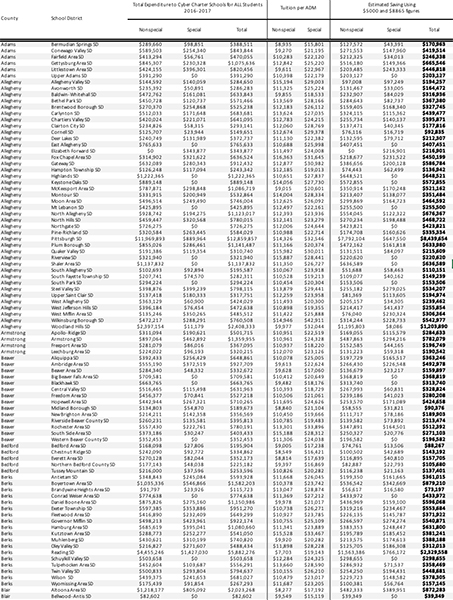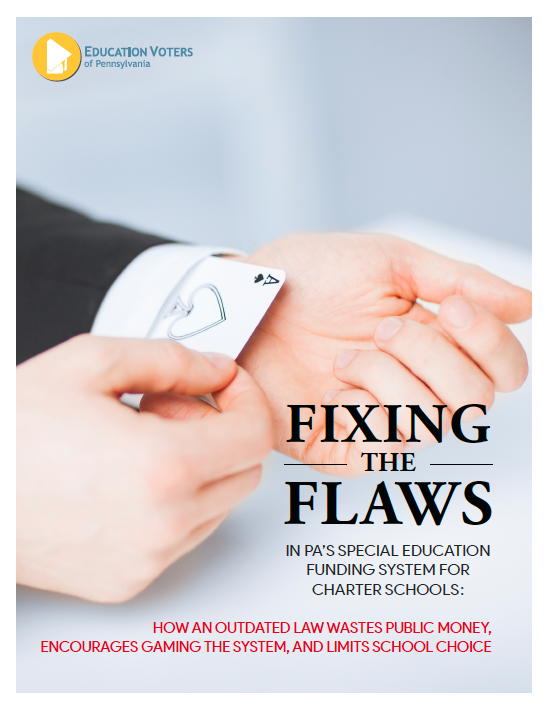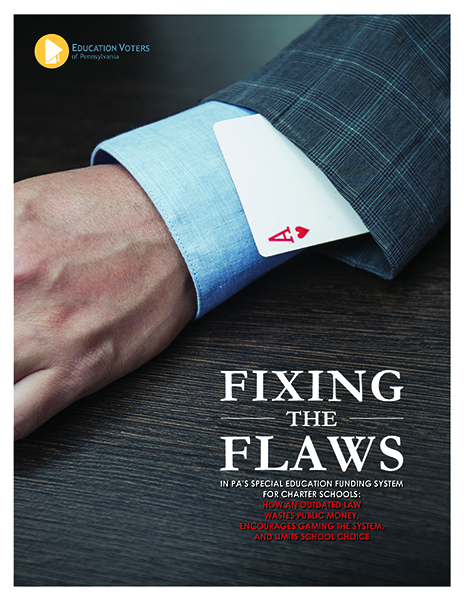CHARTER SCHOOLS
Commonsense Cyber Charter School Funding Reform Will Eliminate Wasteful Spending and Save $290 Million in Taxpayer Money
Cyber charter schools have materially lower costs than either traditional public schools or brick and mortar charter schools, where teachers are in the same classrooms as their students. Cyber charter schools deliver their education over the internet to students in their own homes, typically with a laptop computer that is provided by the cyber charter school. They frequently use recorded programs that can be re-used in many classes or for students individually. Infrastructure is greatly reduced. Despite this different cost structure, they are paid the same as brick and mortar charter schools.
In 2015, the Pennsylvania legislature enacted a new school funding formula that based funding on actual student enrollment and other cost factors. This was a major step forward in correcting a decades-old, deeply flawed, and inequitable system of funding public school districts. The legislature has not yet addressed similar flaws in Pennsylvania’s system for funding cyber charter schools. With an annual price tag over $519 million, funding of cyber charter schools remains just as flawed as the old system of funding basic education was, and has created ever worsening problems for our state’s school districts and wasted tax monies. We recommend adopting commonsense cyber charter school funding reform to eliminate wasteful spending, saving $290 million in taxpayer money, and mitigating the harm that cyber charter schools cause to Pennsylvania’s public school districts.
In 2020-2021, Pennsylvanians will spend $2.8 billion on student tuition bills for charter and cyber charter schools. Most of this funding will come from property taxes. PA’s weak charter school law has allowed the flagrant waste, fraud, and abuse of taxpayer money in the charter sector, while many charters underperform academically and struggle to operate efficiently and ethically.
DOWNLOAD CHARTER REFORM PRIORITIES
In this report, we recommend adopting commonsense cyber charter school funding reform to eliminate wasteful spending, saving $290 million in taxpayer money, and mitigating the harm that cyber charter schools cause to Pennsylvania’s public school districts.
DOWNLOAD
EXECUTIVE
SUMMARY
DOWNLOAD
FUNDING REPORM
FULL REPORT
DOWNLOAD
FACT SHEET WITH SAVINGS
BY SCHOOL DISTRICT
PREVIOUS VERIONS OF THESE REPORTS
DOWNLOAD
EXECUTIVE
SUMMARY
DOWNLOAD
FUNDING REPORM
FULL REPORT
DOWNLOAD
FACT SHEET WITH SAVINGS
BY SCHOOL DISTRICT
Fixing the Flaws in PA’s Special Education Funding System for Charter Schools
A new report issued by Education Voters of PA finds charter school enrollment patterns are consistent with the likelihood that many charter schools are exploiting the state’s special education funding system by cherry picking students with low-cost special education needs and discriminating against students with high-cost needs.
In the report, “Fixing the Flaws in Pennsylvania’s Special Education Funding System for Charter Schools: How an Outdated Law Wastes Public Money, Encourages Gaming of the System, and Limits School Choice,” our analysis finds that charter schools enroll only half as many the students with high-cost special education needs as would be expected in non biased system.
Under the current one-size-fits-all funding system, students whose services cost less than the tuition rate they receive from a school district are a financial gain for the charter school. Those whose services exceed the tuition rate are a financial loss.
Lawmakers must tackle the issue of special education funding for charter schools and finally provide parity between district and charter schools.
This report analyzes special education enrollment data for school districts & charter schools based on the three cost tiers in PA’s Special Education Funding Formula to see if critics’ claims are borne out.
This report includes an appendix that has student enrollment data for students in each special education tier for district and charter schools.

